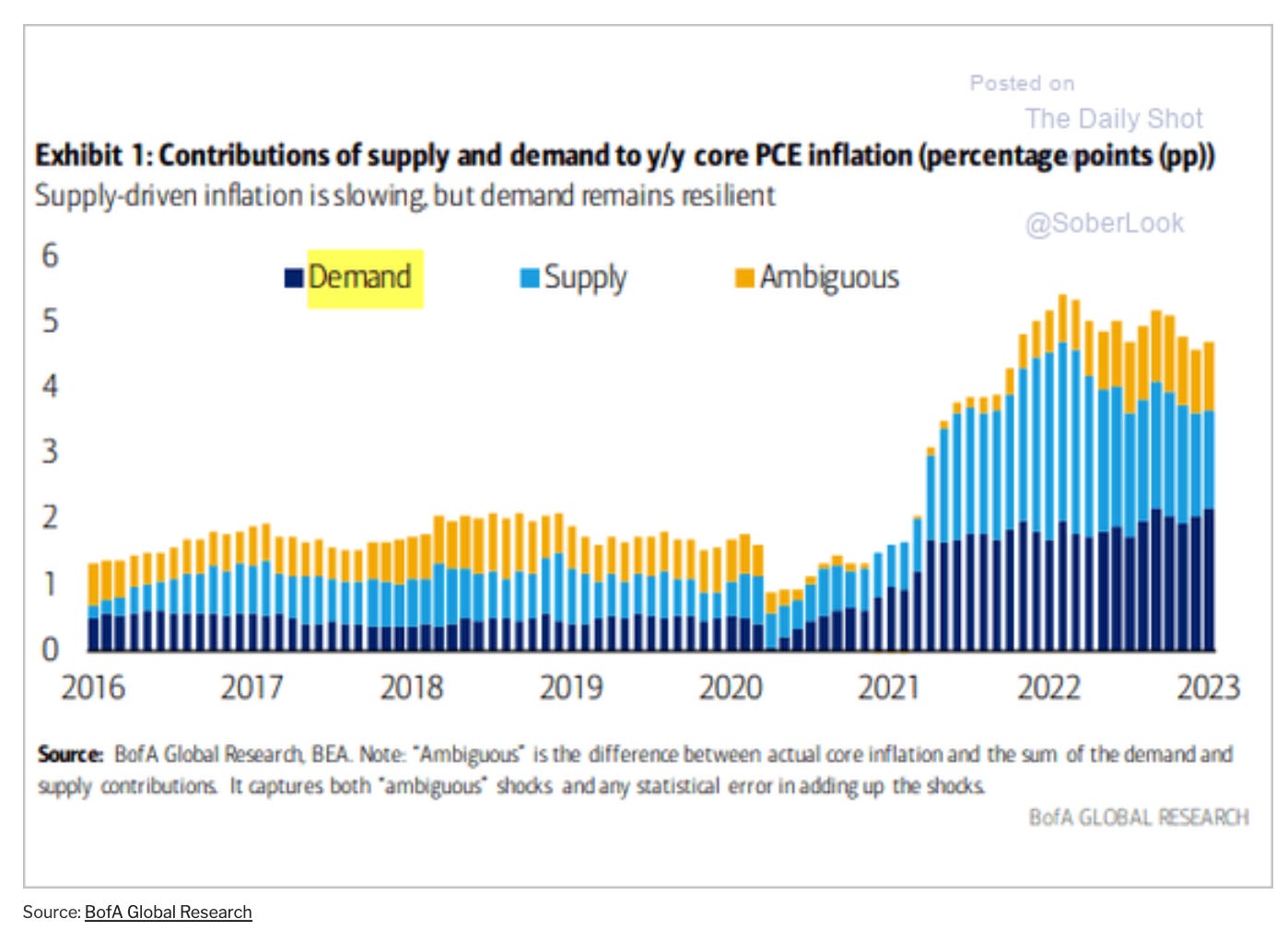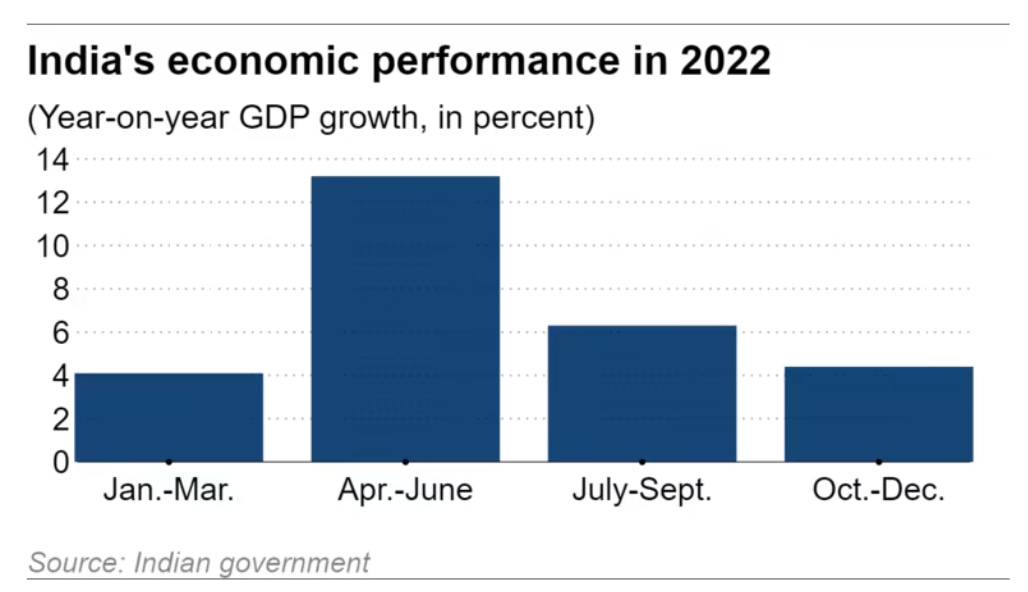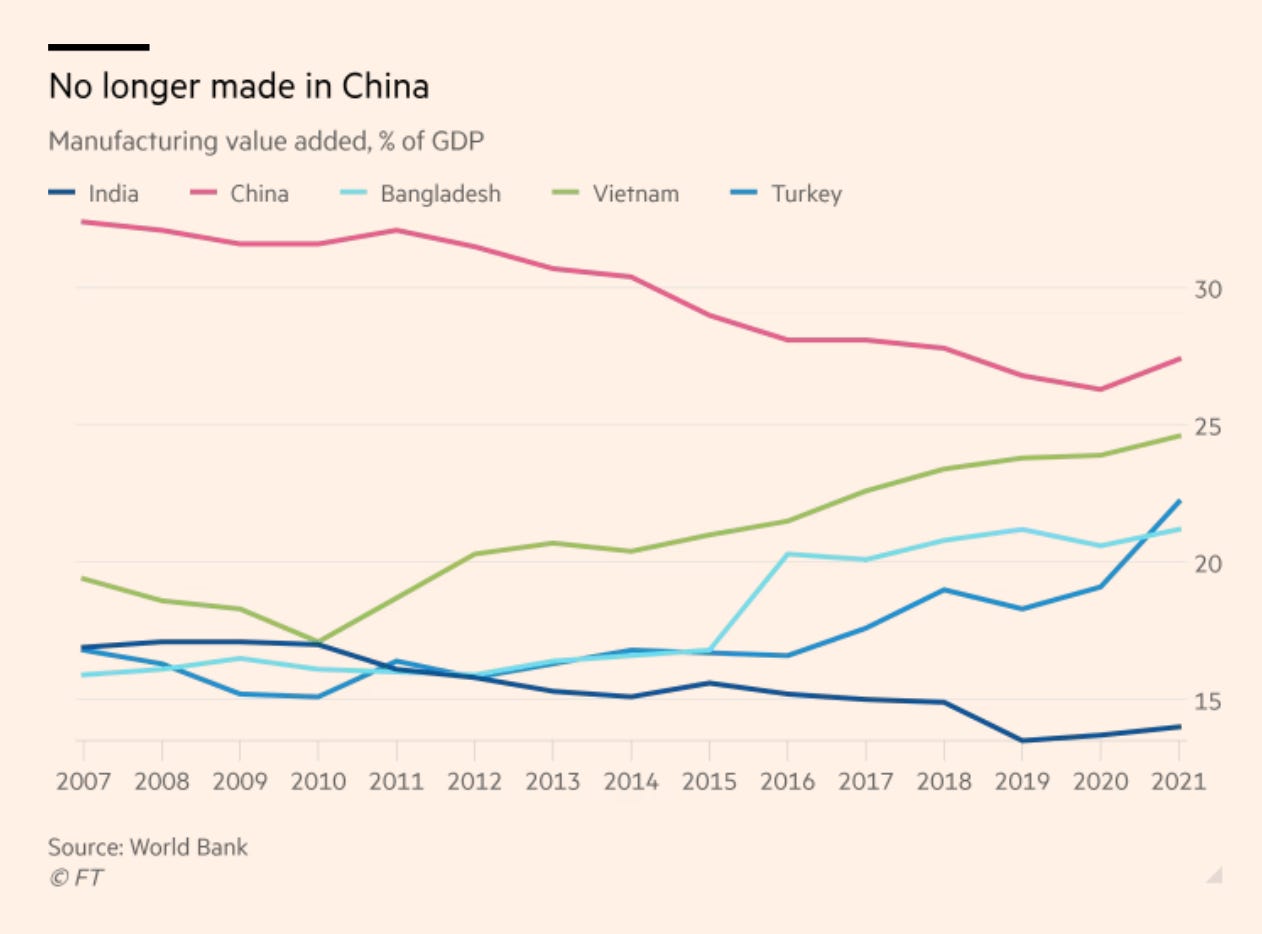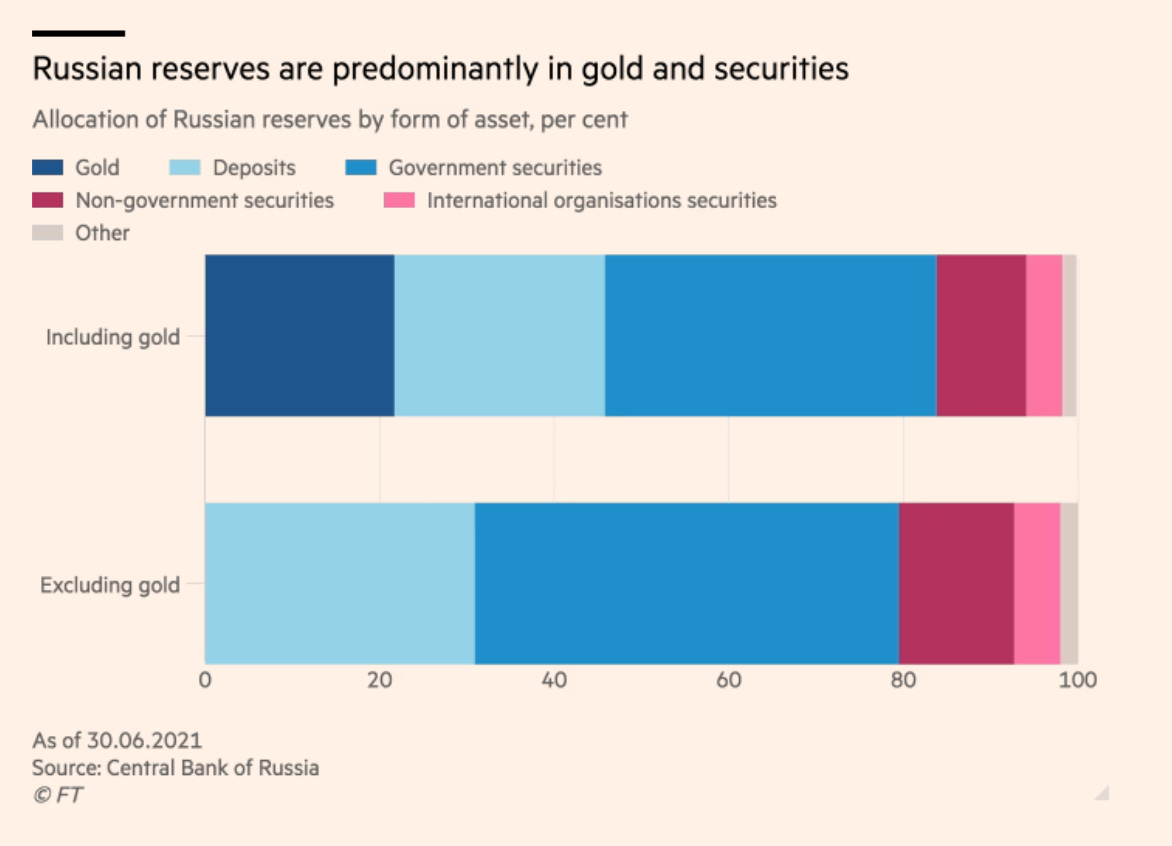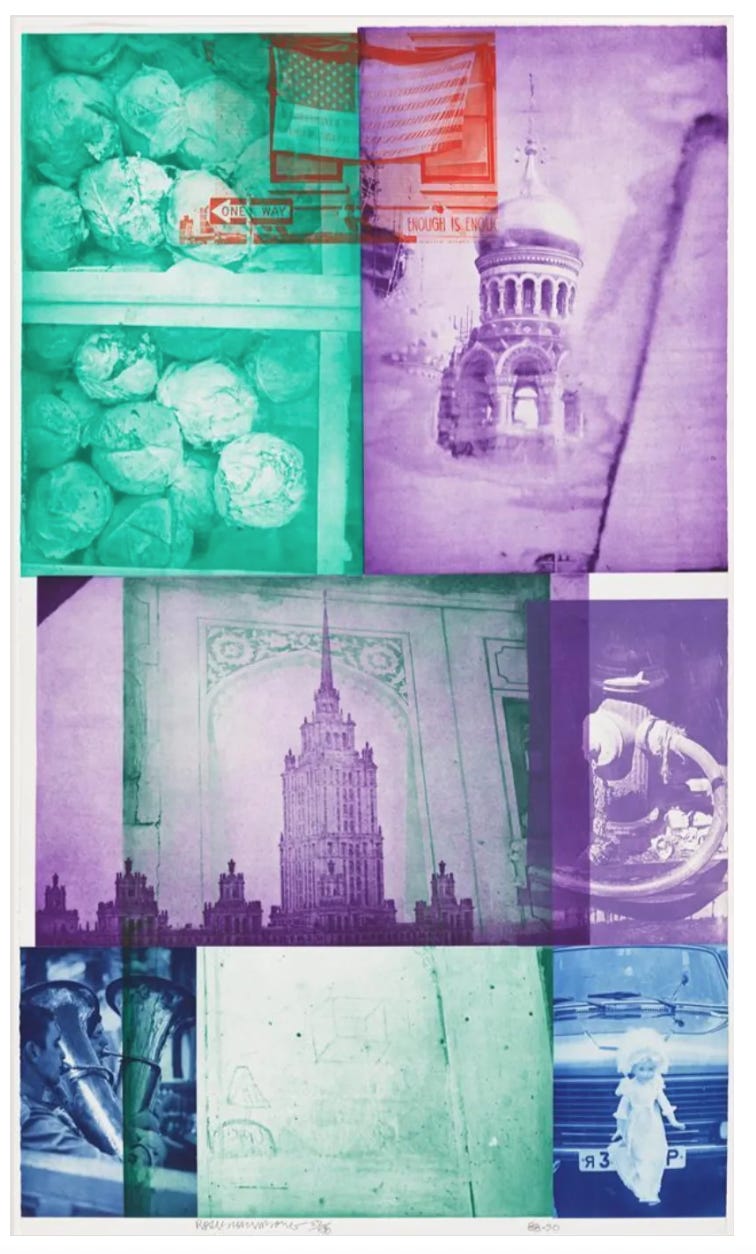Repudiating Russia's reserves, disaggregating inflation & industrializing India
Reading, images and links from Chartbook Newsletter by Adam Tooze
Got to say that I am impressed by this advertising image by shipping giant MSC. Container as Swiss army knife of globalization. Clever! On the other hand the idea that you have to be “prepared for your supply chain” rather than the other way around, has a rather ominous ring to it. Source: Africa Report
How US inflation breaks down by demand and supply components:
Source: Daily Shot
***
Several times per week, paying supporters of Chartbook Newsletter, receive an email like this, jam-packed with fascinating images, links and reading. If you would like to receive the full Top Links in future, click here
***
India outgrowing China
"India's economic growth rate slowed to 4.4% in the third quarter of the current fiscal year, official figures showed on Tuesday, although the country is zipping ahead of regional rival China."
Source: Nikkei Asia
India’s limited industrialization
Rather than industrializing, since 2009 the share of manufacturing in Indian GDP has actually declined, highlighted by @alanbeattie in FT
Multinationals wanting to reduce their geopolitical vulnerability are on the hunt for the “plus one” in a “China plus one” production strategy — or increasingly, as tensions rise between Washington and Beijing, a “China plus one, minus China”. India, especially given last year’s big expansion in high-end Apple iPhone production, is an obvious contender. It’s low-cost, English-speaking and has a substantial domestic market. Prime Minister Narendra Modi presents himself as an enthusiastic globaliser, and has signed or is negotiating bilateral trade deals with the UAE, Australia, the UK and the EU. His “Make in India” strategy, launched in 2014, aims to replicate the success of multiple east Asian countries creating globally competitive manufacturing and lifting millions out of poverty. The reality is less impressive. India has already had a decade of opportunity to scoop up the industrial production leaving China. It has performed poorly, and its trade and investment policy is regressing towards unhelpful Indian traditions of protectionism and import substitution. … Subramanian calculates that in the decade or so since the global financial crisis, China gave up about $150bn of global market share in labour-intensive goods, of which India attracted no more than 10 per cent. Unlike fellow lower-middle-income countries Vietnam and Bangladesh, and even upper-middle-income Turkey, whose export-oriented electronics and garment industries have expanded hugely, the share of manufacturing in the Indian economy actually declined over that period.
Housing markets in downturn - it isnt just the UK and US housing markets!
(1) New Zealand
For subscribers only
(2) Mortgage applications in Germany are crashing.
For subscribers only
Meanwhile, the US construction industry …
… is bifurcating, with residential construction coming off its post-covid peaks and non-residential finally picking up steam
For subscribers only
Sandbu on repudiating Russian reserves
We have a tendency to discuss (reserve) assets as some kind of medieval treasure: gold nuggets and jewels in a chest to which we have, in Russia’s case, temporarily taken away the keys. In this perspective, the question is whether we should (and legally could) take the whole chest. But official reserves are not like that. Russia’s foreign exchange assets are mostly just the flip side of other governments’ liabilities, in particular deposits with western central banks and holdings of their public debt securities. In other words, Russia’s reserves largely consist of our own governments’ promises to pay Moscow money. So instead of asking the question of whether we should confiscate Russia’s assets, we can ask whether we should selectively repudiate Moscow’s financial claims on us. In technical terms, either can be done at the stroke of a pen. I don’t know if the law, in particular international law, treats selective debt repudiation (or reassignment) differently from confiscating sovereign assets. My point is that understanding the economics reveals that these are the same thing in this case. If they lead to different legal analyses, that is bad news for the law, but good news for those of us who insist that Russia must pay for the destruction Putin has wrought.
Source: FT
Collapsing biodiversity
For subscribers only
Yes! They do actually find stuff.
TSA stopped 6,542 firearms last year — more than 88% of which were loaded. That is more than one every hour during normal business hours!
For subscribers only
SOVIET/AMERICAN ARRAY IV, 1988, ROBERT RAUSCHENBERG
Under the acronym ROCI (Rauschenberg Overseas Culture Interchange), Rauschenberg sought to foster cultural exchange amongst artists, poets, and critics -- a private initiative to build bridges toward peaceful understanding through research and exhibitions. This series was begun in 1988, a year before the fall of the Berlin Wall, and includes photographs of New York and Moscow taken by the artist. In 1989, the series was exhibited in Moscow, the first solo show by an American artist in the Soviet Union.
Source: Seattle Art Museum





